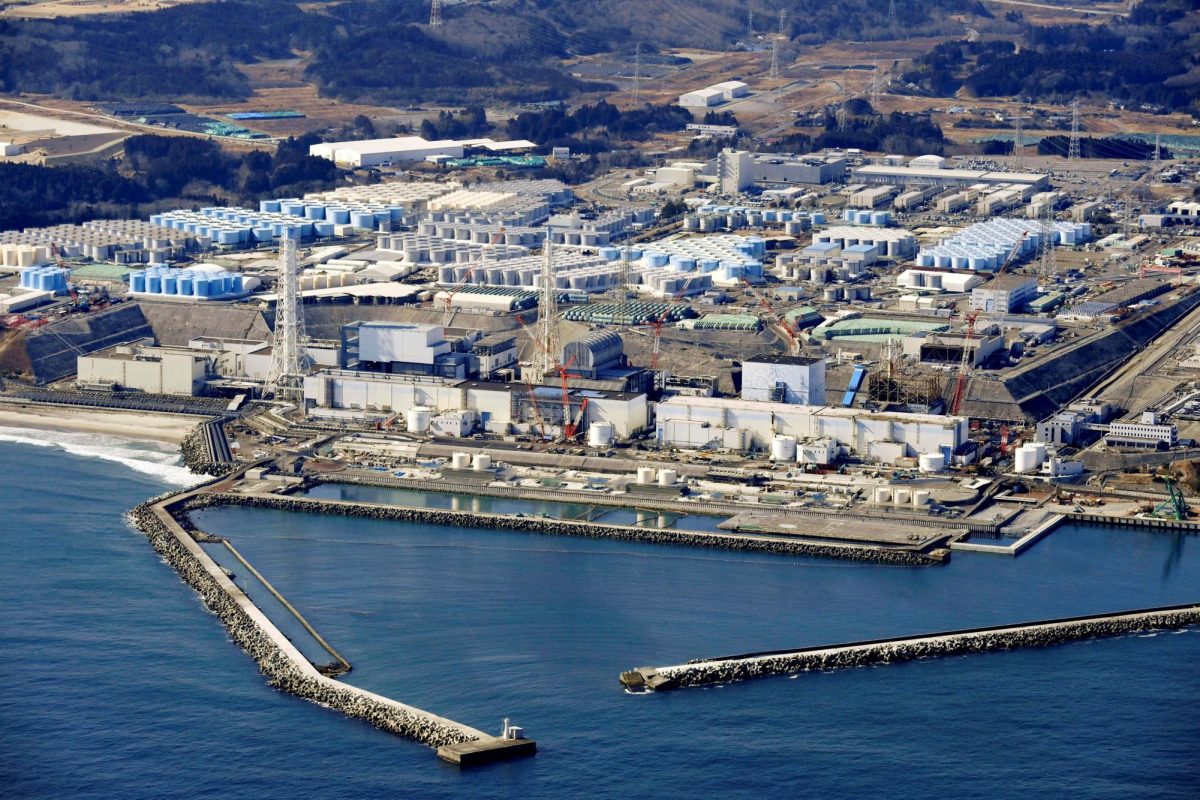Starting on Aug. 24, workers from the Tokyo Electric Power Company (TEPCO) began releasing treated water stored at the Fukushima Daiichi nuclear power station (FDNPS), destroyed by the Great East Japan Earthquake in 2011, into the Pacific Ocean.
Nearly 1 billion gallons of treated water are stored in the tanks at FDNPS, which TEPCO used to cool the reactor when the reactor cooling system was disabled by the earthquake. The resulting wastewater would be highly radioactive, so TEPCO developed the Advanced Liquid Processing System (ALPS) to filter out most of the radioactive contaminants such that the radiation is at a level where workers will not be severely affected by it.
However, ALPS cannot filter out all the radioactive material, specifically tritium. Because tritium is an isotope of Hydrogen and part of the water molecule, it is difficult to filter out. To limit the impact of it, TEPCO is diluting the ALPS treated water such that the tritium concentration when released in the ocean is less than 1,500 Bq/L, less than the 10,000 Bq/L limit for drinking water set by the World Health Organization.
“I think it is ok for Japan to release nuclear wastewater from the Fukushima nuclear plant,” Ryan Jung (12), AP Environmental Science (APES) student, said. “According to what I read, chemical processes will remove most of the radioactive material, so it will not be hazardous. There will not be an impact on the environment because it will be so diluted. I trust the Japanese government that they did their job in effectively filtering the radioactive material.”
The decision to release the wastewater has been controversial worldwide. Even within Japan’s borders, citizens are protesting against the release due to fear of reputation damage to Japanese fisheries that can damage the fishermen and the Japanese economy.
In Korea, the government released a video on Youtube showcasing various experts’ agreement that the amount of radiation is insufficient to pose any significant health and environmental risks, despite continued protests by Koreans in an attempt to stop the release of the wastewater. The Chinese government banned all seafood imports from Japan, a detrimental effect on the Japanese seafood industry.
SIS’s food catering service, JJs, did not respond to an inquiry about the use of seafood for their customers. More analysis will be needed to conclude whether the released water will negatively impact the environment.
“I am aware of the concerns immediately after [the FDNPS water release] about the seafood,” Allyson Lee, APES teacher, said. “However, Tritium cycles through the environment, so if the water was actually treated, it’s probably not a big issue.”


